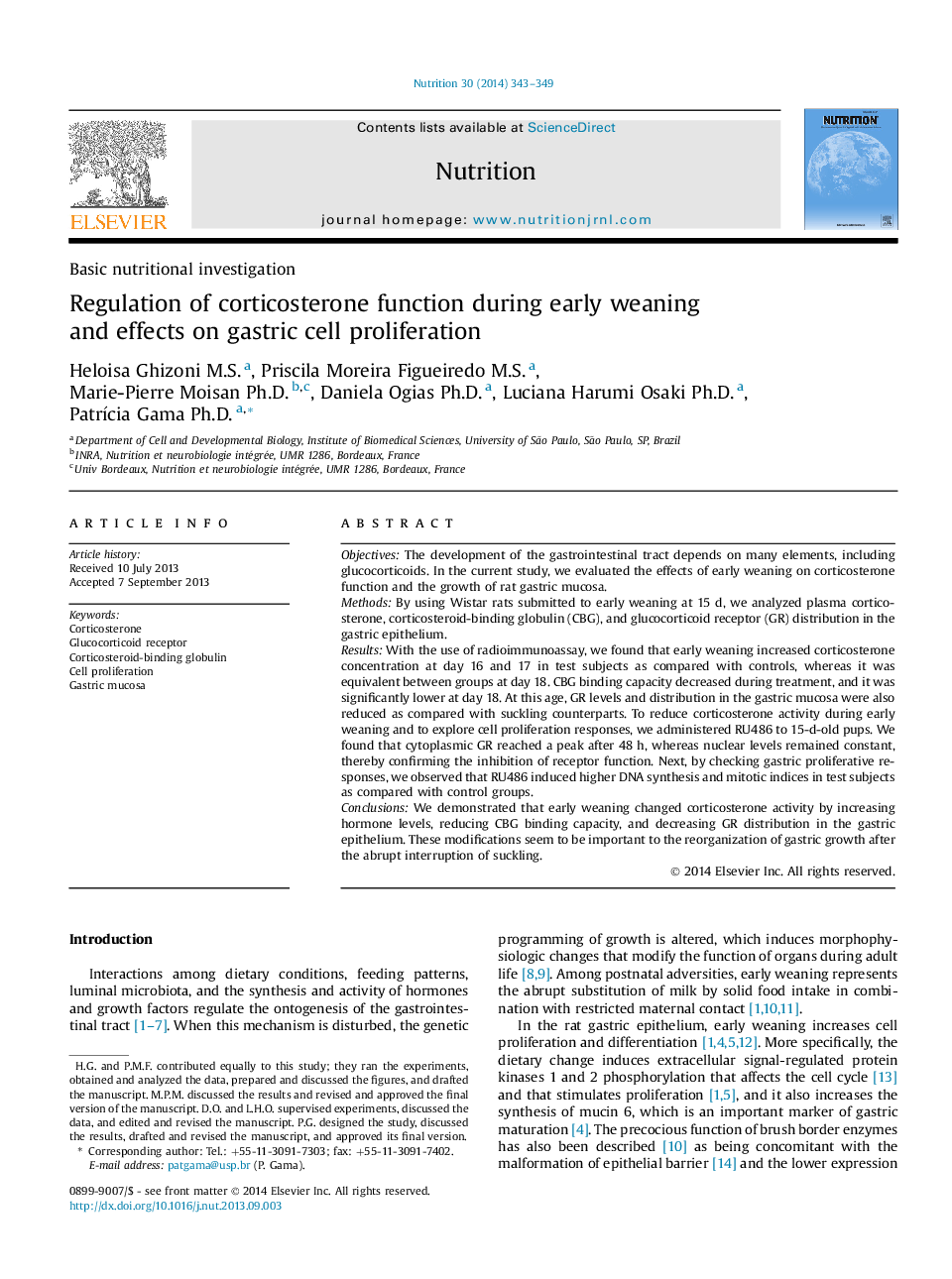| Article ID | Journal | Published Year | Pages | File Type |
|---|---|---|---|---|
| 3276348 | Nutrition | 2014 | 7 Pages |
ObjectivesThe development of the gastrointestinal tract depends on many elements, including glucocorticoids. In the current study, we evaluated the effects of early weaning on corticosterone function and the growth of rat gastric mucosa.MethodsBy using Wistar rats submitted to early weaning at 15 d, we analyzed plasma corticosterone, corticosteroid-binding globulin (CBG), and glucocorticoid receptor (GR) distribution in the gastric epithelium.ResultsWith the use of radioimmunoassay, we found that early weaning increased corticosterone concentration at day 16 and 17 in test subjects as compared with controls, whereas it was equivalent between groups at day 18. CBG binding capacity decreased during treatment, and it was significantly lower at day 18. At this age, GR levels and distribution in the gastric mucosa were also reduced as compared with suckling counterparts. To reduce corticosterone activity during early weaning and to explore cell proliferation responses, we administered RU486 to 15-d-old pups. We found that cytoplasmic GR reached a peak after 48 h, whereas nuclear levels remained constant, thereby confirming the inhibition of receptor function. Next, by checking gastric proliferative responses, we observed that RU486 induced higher DNA synthesis and mitotic indices in test subjects as compared with control groups.ConclusionsWe demonstrated that early weaning changed corticosterone activity by increasing hormone levels, reducing CBG binding capacity, and decreasing GR distribution in the gastric epithelium. These modifications seem to be important to the reorganization of gastric growth after the abrupt interruption of suckling.
